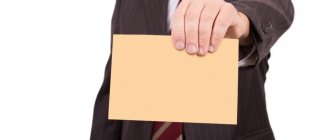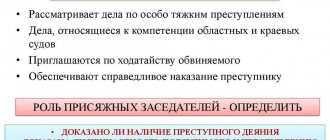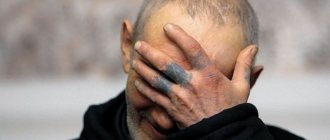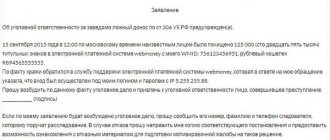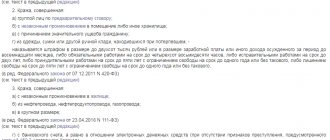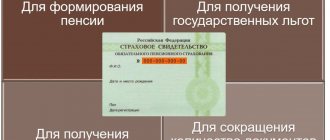From June 1, 2022, jury trials began to operate in city and district courts throughout Russia, including the Revdinsky City Court. The list of Revda jurors included 1,520 people. They can expect to be called to court to serve on a jury. What crimes can a jury try? Is it possible to refuse this civic duty? How are jury lists and panels formed during the process? We are looking into it together with the chairman of the Revdinsky City Court, Andrey Dunaev.
Andrey Dunaev is a first-grader from the Urals. He became chairman of the Revdinsky City Court in 2014. Photo // Vladimir Kotsyuba-Belykh, Revda-info.ru
Who are jurors and why are they needed? What types of cases can a jury hear? I want to be a juror. Where to go? Who can serve as a juror? Who can't serve as a juror? I'm on the list. But I don't fit. I meet all the requirements. But I don’t want to. How is a jury trial scheduled? Who selects jurors for the trial? How long do jurors serve? What if they don’t let me go from work? Do they pay for this? What do jurors decide? What if the jury verdict is “not guilty”?
Who are jurors and why are they needed?
Jurors are ordinary people, residents of Revda, who participate in the consideration of a criminal case along with the judge. Since they are non-specialists and are involved in the consideration of only one specific crime, they are not interested in the case, their decision depends only on the convincingness of the arguments of the parties in the process. In addition, the more people involved in making a decision, the more difficult it is to put pressure on them: that is, the opinion of a jury is more objective and independent than that of a single judge.
Special powers
Why do many defendants apply for criminal cases to be tried by jury? The final verdict, according to most of them, in this case will be softer, since the jury is vested with the power of leniency.
According to criminal procedural law, the defendant has the right to leniency due to the presence of mitigating circumstances. The decision on leniency is made by the presiding judge, taking into account the opinion of the jurors.
Since these participants in the trial are not professional judges and in many cases do not have special legal knowledge, the decision on leniency is most often made by them based on a subjective assessment and attitude towards the personality of the defendant. For this reason, most defendants rely on the humanity of these non-professionals and hope for a reduced sentence.
What types of cases can a jury hear?
At the level of a city or district court, with the participation of a jury, criminal cases can be tried for crimes provided for in Part 1 of Article 105 “Murder” and Part 4 of Article 111 “Intentional infliction of grievous bodily harm, negligently resulting in the death of the victim” of the Criminal Code of the Russian Federation. These crimes are the most dangerous for the state and society. Perhaps in the future the legislator will expand the list of cases subject to jury trial. If the defendant is accused, in addition to murder or causing grievous bodily harm resulting in death, of other crimes, then the entire criminal case can be considered by the jury, not on one episode, but on all. After all, circumstances are assessed as a whole.
I want to be a juror. Where to go?
According to federal law, every four years the administration of the city district of Revda and the city district of Degtyarsk compile lists of candidates for jurors: the main and the reserve (in case of illness of the juror or if the juror is unable to appear in court to participate in the trial). Since cases must be considered as quickly as possible, there are 1,520 people on the main list of Revda jurors. These lists are formed by random sampling from existing lists of voters registered in the district (based on data from the state automated system “GAS-Elections”).
These lists are then sent to the court (no later than a month before the expiration of the terms of office of the previous jurors), from which citizens who cannot participate in the court hearing as jurors are excluded. Thus, it is impossible to become a juror at your own request. Only a person included in the specified list can be a juror.
- Don't know if you're on the jury list? Search for your name here.
Selection rules
The selection of candidates for the PP is carried out on the basis of the personal data of voters.
Specific citizens are selected randomly using a special computer program.
The list is then approved by the regional authorities.
The names of selected jurors must be published in specialized media. After receiving the notification, the citizen may refuse to participate in the trials. If there is such an application, a candidate from the additional list is selected in his place.
The procedure for selecting candidates for a specific case
The procedure for selecting jurors for a specific case is no different from the general selection of candidates. They are selected randomly.
By law, no earlier than a week before the court hearing, selected PPs must receive subpoenas.
At the preparatory meeting, additional selection to the board is carried out. The parties to the trial have the right to reject the candidacy of a particular juror, but this requires the presence of weighty arguments.
Nuances of candidate selection:
- all parties to the trial take part in the consideration of candidates;
- the desire to reject the candidacy of a particular juror must be motivated;
- a participant in the process cannot reject more than two candidates.
Who can't serve as a juror?
The following persons cannot serve as jurors:
- registered in a narcological or psychoneurological dispensary (in connection with treatment for alcoholism, drug addiction, substance abuse, chronic and protracted mental disorders);
- suspects, accused, defendants, convicted;
- professional lawyers (since all jurors must be equal in their qualifications), as well as officials, deputies and clergy, military personnel or those dismissed from military service under a contract from the FSB, state security or foreign intelligence agencies, for a period of five years from the date of dismissal.
I'm on the list. But I don't fit
If a person does not meet all these requirements, but is on the jury list, he can (and should) apply to the administration to be removed from the list. However, if he does not apply himself, he will still be excluded during the inspection (they will not be punished for this).
But if it is revealed that one of the jurors who participated in the trial could not have been a juror, but hid it, the court’s decision will be canceled, and in this case the case will be subject to a new trial, with the participation of other jurors.
Is there any liability for a candidate for failure to appear in court upon notification?
Being included in the list of candidates and receiving notification does not mean that a person is obliged to perform civic duty. Experts recommend notifying the authority by filing an application for self-recusal if it is not possible to appear. In such a situation, the judicial authority will be able to extend the invitation to other people.
Note: An additional way to inform a department employee is the contact phone number specified in the letter. According to the law, there is no liability for failure to appear.
I meet all the requirements. But I do not want
Participation in the administration of justice as jurors is a civic duty, just like fulfilling military duty and participating in elections. It's up to you to decide whether to carry it out or avoid it. When you are called to court to serve as a jury, you have the right to point out the reasons that prevent this, or to recuse yourself. For example, the presiding judge may exempt from jury duty a relative of the defendant, a woman whose child is under three years old (at her request, of course), or an employee, without whose presence at work public or state interests may suffer. Religious beliefs are also considered a valid reason for recusal.
Who selects jurors for the trial?
A separate panel of jurors is recruited for each trial. City courts serve six jurors, plus two alternates. In total, eight jurors must be selected for the trial in Revda. They are chosen in court from lists, still by random sampling. Each candidate is checked, summoned to court, and the possibility of his participation in the process is clarified. In addition to the above general conditions, a juror cannot be a close relative or relative of any of the participants in the proceedings in this criminal case. Also, a juror (candidate juror) cannot participate in criminal proceedings if there is reason to believe that he is personally, directly or indirectly interested in the outcome of this criminal case.
In addition, the prosecutor and the defendant may ask (even without reason) to disqualify one or more candidates from the preliminary list. And they should be expelled.
The jury selects a foreman and, before the hearing begins, takes an oath in which they solemnly swear to perform their duties “honestly and impartially.” If one of the jurors falls ill during the hearing of the case or for other valid reasons cannot attend the hearing, or is removed (at the initiative of the judge or at the request of the parties), then he is replaced by a reserve juror, who is also present at the court hearings.
What if they don’t let me go from work?
They must let you go, because the state summoned you. If the manager does not want to release the juror to the court session, then his actions may be regarded as obstructing the juror in the performance of his duties. There is responsibility for this. You have the right to contact the prosecutor's office, the prosecutor's office will conduct an investigation, and measures will be taken against your manager.
During the trial, the jury enjoys guarantees of the independence and immunity of judges.
Guarantees
Since jurors hear criminal cases classified as serious and especially serious, they and their family members may be subject to moral or physical pressure.
Being full participants in the trial, assessors fall under the protection of the state. They become inviolable, and law enforcement agencies are obliged to protect the life and health of the juror himself, members of his family and the safety of his property.
Upon the statement of these persons about pressure or threats related to the consideration of a specific criminal case, state bodies immediately take the juror under their protection for the entire period of the judicial investigation.
It is also prohibited at the legislative level to interfere with the activities of jurors during the administration of justice.
Juries, while performing their duties, are subject to the constitutional provisions that apply to judges. For example, they are guaranteed immunity and independence.
Do they pay for this?
At work, jurors are given unpaid leave. But jurors are paid compensation from the federal budget - half the official salary of a judge of this court for each day of participation in the trial, but not less than the average earnings of a juror at the place of his main work for such a period (he provides a certificate of average earnings). If the juror's salary is higher, then the reward is increased to his salary. Jurors are also reimbursed for “costs associated with appearing in court,” such as tickets.
What do jurors decide?
The questions that jurors must answer after the trial are: is it proven that the act occurred, is it proven that the defendant committed this act, is the defendant guilty of committing this act. That is, “questions of fact.”
If the defendant is found guilty, the question is whether he deserves leniency. And the judge determines what punishment should be given to the criminal if the jury finds him guilty. To reach a verdict, the jury is given three hours in the deliberation room. As the law says, “juries must strive to reach unanimous decisions.” If it is not possible to reach unanimity within three hours, then the decision is made by a majority vote. If the votes are equally divided, then the answer most favorable to the defendant is accepted: which means “to acquit.”
Responsibilities
Persons involved in a court hearing in a criminal case are vested with the following powers and responsibilities:
- Study of all the circumstances of the crime committed, examination of physical evidence (including listening to audio and video recordings, examination of objects and instruments of crime).
- Presence during investigative activities, the need for which may arise during court proceedings.
- Announcement of issues on the merits of the criminal case (through the presiding officer).
- Keeping notes that will later be needed to make decisions in the deliberation room.
- Demand for clarification of the norms of current legislation, documents read out in court (also not directly, but through the presiding judge).
